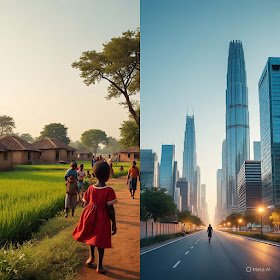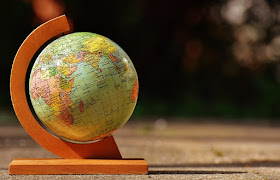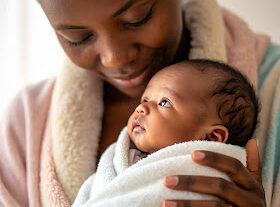By Sola Adeyegbe
One of the quiet wonders of our world is the way different societies expand not just in wealth, but in people. Travel across nations and you will notice a fascinating contrast: the more a country advances in knowledge, technology, education, and opportunity, the fewer children its families tend to have. And in lands where life is simpler, incomes are lower, and communities remain closer to their traditional roots, families often grow in joyful abundance. At first glance, some find this strange. But look deeper and you will see an elegant pattern revealing itself; one that says much about human aspiration, security, fear, love, and the way societies evolve.
In poorer, rural, or agrarian nations, children are woven into the very fabric of economic life. They are blessings, yes, but they are also helping hands. A child can till the soil, assist in trade, run errands and help raise younger ones. In such societies, a large family is not a burden; it is security, labour force, lineage, and legacy. The cost of raising a child is modest, the expectations simple, and life’s demands do not punish family size. In these contexts, more children literally mean more strength, more voices in the compound, more hands in the field, more hearts bound in loyalty.
But move into industrialised societies and the picture shifts dramatically. The child becomes not a contributor to economic survival but a precious, high-investment project. Education is expensive, healthcare elaborate, lifestyles demanding. Homes shrink as cities expand. Every additional child requires time, attention, resources, and emotional energy. In these environments, children cost more, not in affection, but in the currency of modern life. And so families choose fewer, so they can give each one more.
Then there is the profound influence of education. As societies advance, women gain greater access to schooling, careers, autonomy, and choice. With knowledge comes widened horizons; with opportunity comes the freedom to decide when and how to build a family. And with that freedom naturally comes delayed marriage, later childbirth, and smaller family sizes. This is not a rejection of motherhood; it is a rebalancing of identity. The modern woman seeks to be fulfilled in all dimensions of her being: intellectual, professional, emotional, and maternal. And in that balancing act, time becomes the decisive element.
Another force quietly shaping populations is security, particularly old-age security. In wealthy nations, people rely on social systems, pensions, health insurance, and structured welfare. But in poorer societies, the children are the pension. The children are the insurance. The children are the promised comfort of old age. It is no surprise then that families seek safety in numbers. Where institutions are weak, the family becomes the institution.
Yet, beneath all these factors lies a deeper truth: human beings are always responding to their environment. In societies where uncertainty, fragility, and risk loom large, the instinct is to fill the home with life. In societies where the future feels controlled, predictable, and structured, that instinct relaxes. People choose smaller families because the world around them feels stable enough to permit it.
So the contrast persists, not because one path is better or worse, but because each society is answering the same question in different ways: What do we need to feel safe, fulfilled, and hopeful about tomorrow? In some places, that answer is wealth. In others, it is children. In many, it is a mix of both.
But the wisdom for each of us is this: every society grows according to what it values most. Some grow in numbers; others grow in knowledge. Some build security through family; others through institutions. And in the end, population patterns are simply mirrors showing what each nation fears, cherishes, and aspires to.
May this understanding remind us that development is far more than highways, factories, or shifting birth rates. Development is the story of a people discovering what they need to truly thrive and adjusting their choices with wisdom. Every nation, in its own rhythm, is striving to build a future where its children, whether many or few, can stand taller than those before them. And whatever population path we take, one truth must guide us: real development is both material and spiritual, progress of the land, and elevation of the soul!.





